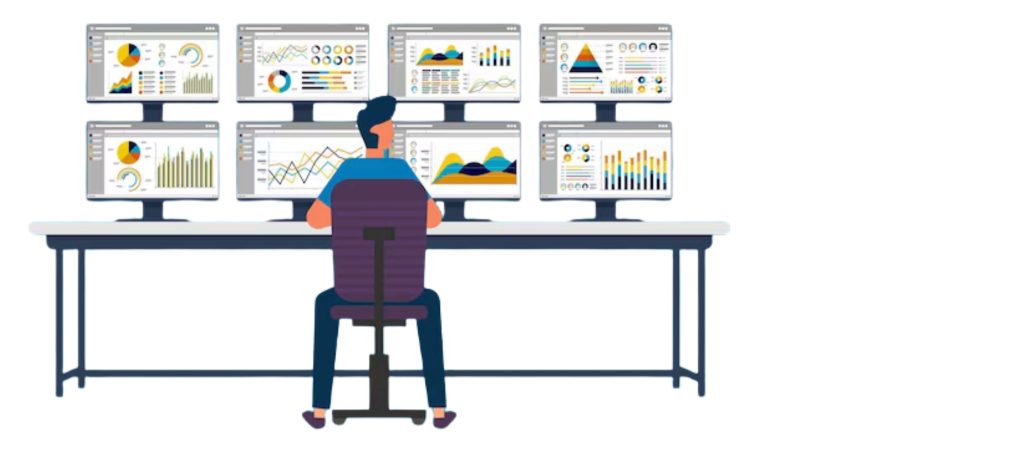Introduction
Let’s face the facts cybersecurity is not something businesses can treat like a checklist these days.
It’s not about securing passwords and crossing your fingers. Threats are more advanced, frequent, and typically secretive until too late. Whether you’re on the lean startup side of the spectrum or handling multiples of employees across business units, at some point, you need more than a few tools working for you — you need a human to constantly look across the data, find patterns (and when they’re broken), and react fast to something that just feels off.
The person is a Security Operations Analyst and hiring the right one can mean the difference between stopping an attack in its tracks and a full-blown crisis.
In this blog, we’ll explain what this role does, when you need to hire one, and what skills and mindsets, as well as red flags, to look out for. Whether it’s your first security hire or adding to an existing team, this will help you make a smarter and more confident decision.
What Does a Security Operations Analyst Do?
Before we get into the hiring process, let’s clarify exactly what a Security Operations Analyst does — because there’s more to it than “looking at alerts.”
They’re, at their core, your digital first responder. Their job is to keep an eye on your systems for anything suspicious — failed logins, unexpected file changes, network traffic spikes — and assess whether it’s a false alarm or the beginning of a break-in.

Here’s what that typically includes:
- Keeping an eye on security systems: Including firewalls, intrusion detection systems, and endpoint protection platforms
- Investigating anomalies: Sifting through logs, linking patterns, and tracing suspicious behavior back to its source.
- Incident response: Triaging actual threats, documenting the problems, and assisting teams in containing or preventing them
- Looping back to the processes: Suggesting better security policies, automation scripts , or detection rules to make your environment more resilient over time
- Keeping current: Monitoring the threat intelligence landscape, zero-day threats, and new attack vectors
In short, they don’t simply press a button — they work through the data, reason through the information, and help you over the long haul of security maturity.
When Should You Hire One?
The question now, that you know what they do, is timing.
And here’s the truth: The vast majority of companies wait too long.
If you’re working with sensitive customer information, processing payments, or using cloud services to a large extent, it’s not “too early” — it is likely time. You don’t have to be the size of a bank to justify this hire. Small and mid-sized businesses tend to be more vulnerable because attackers know their victims don’t yet have full-time defenders.

Here are some indicators that you need a Security Operations Analyst:
- Your IT team is too busy covering base infrastructure to handle threat response.
- You’ve had near misses — bad logins, ransomware attempts, phishing emails that slipped through filters.
- You have recently scaled (new locations, added users, added new tools), and security processes are lagging.
You are at risk of litigation (GDPR, HIPAA, SOC 2, etc.) and need to monitor and document activity more thoroughly.
In other words, a good security analyst doesn’t just deal with problems — they prevent them from affecting your business. And that is an investment to make early on.”
Before posting a job or reviewing resumes, you must know what truly makes a qualified Security Operations Analyst. Because this role is so much more than ticking the box on a list of tech skills, even if certifications and tool experience have some relevance.
The best analysts aren’t just technically sound — they’re cool under pressure, quick-thinking, and good communicators. You’re not bringing on someone to sit behind a screen; you’re bringing on someone who can cut off threats at the pass and who can work with your team to resolve them without panic.
Also Read: Virtual Assistant Services in Norrköping
What Skills Should You Search For?
The ideal Security Operations Analyst is a hybrid of both technical knowledge and calm assessment. Tools are just one aspect of the role — it requires someone who can stand up to threats, assess risk quickly, and communicate effectively across teams.

Here’s a breakdown of what to watch for:
1. Technical Skills: You want someone who can use the tools and speak the language — but more than that, someone who can make sense of what they see.
2. SIEM platforms (e.g., Splunk, QRadar, Microsoft Sentinel): These are the tools where alerts, logs , and threat patterns exist. It’s not enough for your analyst to know how to set up alerts: He also needs to know how to filter out noise and real risks. Find an individual who understands how to optimize these platforms for your setting.
3. Network and endpoint security tools: From firewalls to antivirus to EDR, they need to know how to read traffic and know when something doesn’t look right. A great analyst knows what “normal” looks like in your network and detects when that changes — often before anyone else.
4. Log analysis and scripting: It’s not just about reading logs; it’s about being able to read them quickly. A Python, PowerShell (or even basic logs parsing) Guru can hunt for incidents more efficiently and automate all the boring stuff that takes time.
5. Incident response frameworks: They should know the phases of detection, containment, eradication, and recovery. If they’ve been through a few real incidents, all the better — experience gives you a perspective that’s hard to fake.
6. Basic cloud security: Depending on if your business uses AWS or Azure, or GCP, your analyst should be aware of how the attacks occur in the cloud. Find someone who is well-versed in IAM roles, misconfiguration, and logging tools like AWS CloudTrail or Azure Defender.
Soft Skills are More Important Than You Think
The best analysts write compelling emails, keep cool heads in a crisis, and develop trust with the non-technical teams. These types of soft skills are typically what make or break their efficacy.

1. Cool under pressure:
Security incidents are no fun, and you don’t want a person whose first instinct is to freeze or scream. A good analyst stays calm, sticks to the process, and communicates clearly, even as the clock ticks away and adrenaline flows.
2. Strong Communication:
Whether writing a post-incident report or explaining a risk to leadership, your analyst needs to translate technical findings into simple terms. Seek those who can articulate their thinking and educate others without being alarmist.
3. Pattern recognition:
Threats are not always visible. Analysts have to detect delicate irregularities— such as a user logging in at an unexpected hour or a surge in outbound traffic. People with strong pattern recognition come from all walks of life where critical thinking is a part of the job, not just cybersecurity.
4. Team involvement:
They’re going to work with IT, DevOps, HR, and occasionally with law enforcement. If that person isn’t able to work with others, share knowledge, or take feedback well, they will fail. A strong analyst knows that security is a shared responsibility not a siloed job.
Red Flags to Look Out for in Candidates
Knowing what to search for is only part of the equation — the other part centers on knowing what to avoid. They sound good on paper — a strong resume or a few well-placed certifications — but if the person behind them lacks the right mindset or real-world skills, they could become the weak link in your cybersecurity chain.
Join us as we explore the most common red flags when hiring a Security Operations Analyst and what they mean.

1. Focus on Theory, Not Real-World Risk:
A candidate who speaks much about theoretical attacks, textbook definitions, or what they “would” do in an incident, but has little to say about what they’ve done, is a red flag. Now, yes, certs like CompTIA Security+, CEH, or CISSP look good. But if the candidate isn’t able to walk you step by step through the real-world experience of how they identified, investigated, or responded to a live threat, then you’re missing the practical experience that is what matters most.
Things aren’t clean in real environments. Logs are messy. Alerts are noisy. Time is short. A good analyst will tell stories, not just theories. They’ll discuss incidents they managed: what transpired, what actions they took, and what they learned. “If they can’t think of one, it could be that they haven’t yet been in the trenches, which can be a huge issue when something does blow up.”
2. Ability to Communicate Incidents at the Most Basic Level:
Say the candidate does catch a threat. That’s only the first step. And now they have to explain it — to IT, to the CTO, maybe even to the CEO. And if they can’t clearly and calmly break it down in the pressure of the moment, the incident response falls apart quickly.”
In the interviews, have them describe a newly discovered vulnerability in layman’s terms. Or talk about a time they had to escalate an issue. If their answer is full of jargon, or if they seem to have a hard time stringing together a comprehensive response, that’s a sign they may not perform well under pressure. Communication is critical when non-technical teams need to grasp what has happened and what will happen next.
Analysts who can’t articulate their line of thinking will slow the team down or contribute to confusion. In a live breach, that sort of disconnect can cost critical time.
3. Inflexibility or Rigid Thinking:
Each incident is different and unique. Conversely, a candidate who is too wedded to inflexible checklists or can’t think outside the box may prove unable to keep up with changing threats or threats that respond to the ear of the checklists.
Security analysts have to catch up. If they’re too caught up in “rules” or only what the SIEM is telling them, they’ll miss subtle signs of compromise — or worse, ignore them. You can find out during interviews by asking scenario-based questions: “What if your SIEM is down and someone at your organization reports something suspicious? What would you do?”
Find someone who can operate within a framework but also improvise — someone who can do process but be process-less when needed. In a grey area field, analysts with a black-and-white super-mainstream mindset may not feel comfortable making judgment calls or handling unexpected variables.
4. “Solo Operator” Mentality:
Cybersecurity is often viewed as a hyper-technical field — and it is, but just not a one-person job. If a candidate appears reticent to partner with others, delegate, or seek assistance, that’s a red flag.
You want someone who knows that getting a business win means gaining the commitment of IT, HR, legal, dev teams, and leadership. If they behave as if they only ever work solo or they have no interest in learning over the cubical cross-team, they are going to create friction, miss context, or not share vital information. This can greatly slow down the incident response or leave blind spots in your defense.
Seek individuals who reference previous team collaborations, how they mentored others shared knowledge, or facilitated postmortems. A solid Security Operations Analyst understands they’re part of a chain, and protecting the organization requires more than just technical chops.
By now, you know what to seek and what to skip. However, recruiting a good Security Operations Analyst isn’t as simple as reading resumes and keeping your fingers crossed. It’s about constructing a smart, thoughtful process that elevates the right candidates and allows your team to have confidence in the ultimate decision.
Also Read: Virtual Assistant Services in Örebro
How to Structure This Process Easily
You don’t have to be a cybersecurity expert yourself to run a hiring process that produces top talent — if you know what areas to focus on. We shall go through it step by step.

Here’s how we broke here down into four steps:
Step 1: Write a clear, human job description
Skip the jargon. Do not list every tool under the sun — focus on what you want and what outcomes you want. Instead of “Must know Splunk, QRadar, Sentinel,” try “We need somebody to monitor threats, investigate alerts, and help us improve our processes for security.” Only include your stack if you want an experienced person on it — otherwise, you want to hire for flexible adaptability.
Include requirements for soft skills as well: communication, decision-making under pressure, collaboration with a team.
Step 2: Add a Realistic Screening Task
Rather than theoretical or rote multiple-choice questions, provide them with a brief, scenario-based exercise. Something along the lines of: “Here is a simple log file. What stands out to you?” or “What steps would you take when investigating a reported phishing email?” This provides some insight into how they think — not just what they’ve memorized.
Keep it brief and relevant. The aim isn’t to swamp them — it’s to watch how they react to real-life, messy situations.
Step 3: Interview for Skill and Thinking
With technical depth, you can use the interview to test. Ask:
- To prioritize alerts in a noisy SIEM, follow the below methods:
- What is the one mistake you made on an incident, and how did you way of handling it?
- How do you explain a vulnerability to someone without a technical background?
These questions get at the ways they understand risk, how they work under pressure, and how they work with others.
Step 4: Bring IT, Compliance, and Leadership Into the Decision
Security affects everyone. If your final candidate can check all of the technical boxes but doesn’t match the values or communication style of the broader team, that can lead to friction in the long term.
Bring someone from IT into the fold, someone from leadership, and even someone from HR if you are creating a trusting, security-aware culture. The right Security Operations Analyst isn’t just plugging into your system — they’re becoming a part of your ecosystem.
Conclusion
An exceptional Security Operations Analyst is not just a technical hire — they are a strategic one.
They’re the person who is going to not only quietly ensure that your systems are secure, and identify red flags before they turn into breaches but also enable your growth with confidence. Having one isn’t only about response to threats — it’s about long-term resiliency.
Don’t rush it. Avoid being deceived by superficial experience. And don’t do it alone if it can be avoided.
The right hire will make your company stronger, safer, and more prepared, whether you are hiring your first analyst or expanding a security team.
About Us
Tasks Expert offers top-tier virtual assistant services from highly skilled professionals based in India. Our VAs handle a wide range of tasks, from part time personal assistant to specialized services like remote it support services, professional bookkeeping service etc. Furthermore, it helps businesses worldwide streamline operations and boost productivity.
Ready to elevate your business? Book a Call and let Tasks Expert take care of the rest.










